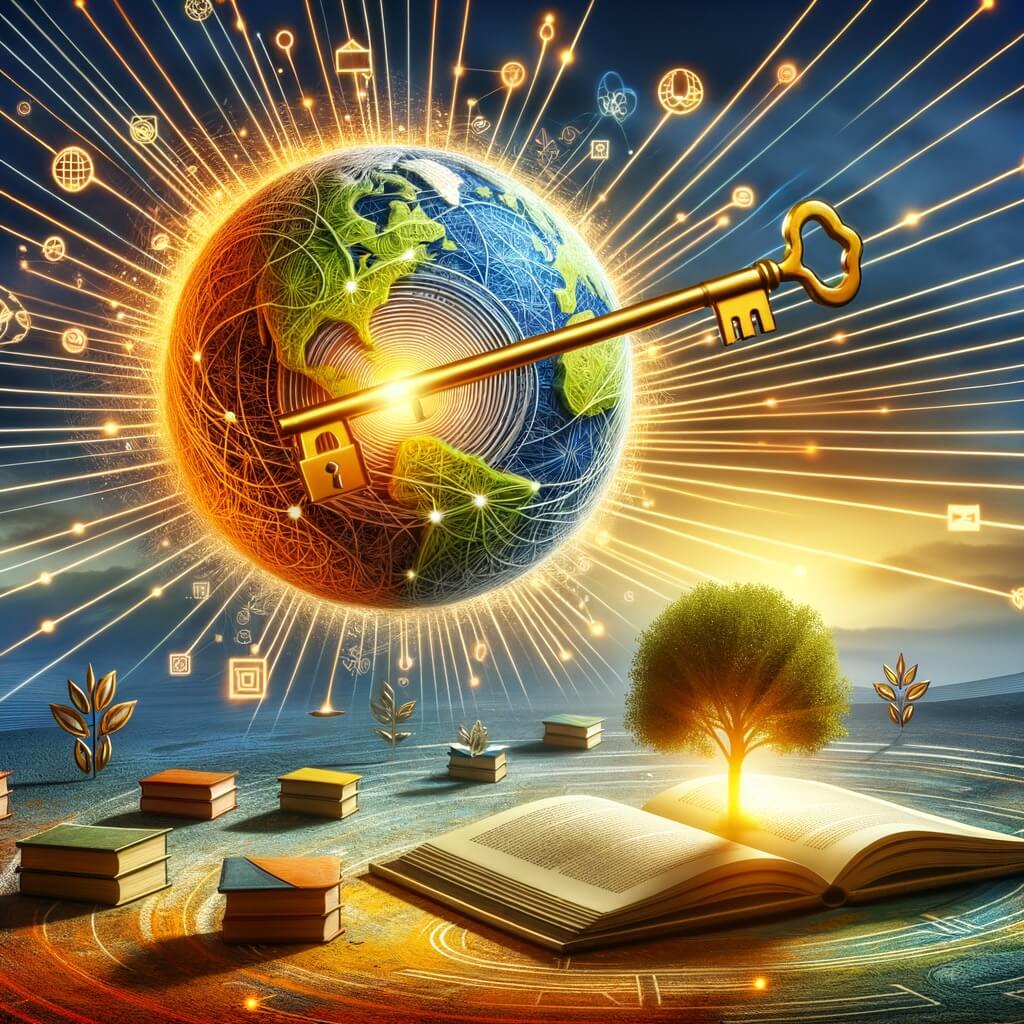Nelson Mandela: “Education is the most powerful weapon which you can use to change the world.”
Should international students go to Russia or China to study?
I argue that they should.
In times of conflict, as long as they would be safe, we should increase study abroad and exchange.
We should invest far more in our education system.
Instead of bombing countries, we should invest in their education systems.
Build them schools, so they can build wealth.
(If only it were that simple)
Education equips individuals with the tools to critically analyze their beliefs, understand complex global issues, and empathize with others—skills that are essential for the leaders and citizens of tomorrow. It is through education that we can fight the battles within ourselves, overcoming biases and prejudices that contribute to conflicts. Here’s how education makes a significant difference:
1. Humanizing Opponents
Through educational exchanges and cultural interactions, individuals from conflicting nations can see each other as humans with similar aspirations and challenges, rather than faceless enemies. These interactions help dismantle harmful stereotypes and reduce the dehumanization that often fuels conflicts.
2. Maintaining Open Channels
Educational and cultural exchanges keep communication channels open even when political relations are strained. These connections ensure that dialogue continues, fostering mutual understanding and paving the way for diplomatic solutions to arise.
3. Fostering Mutual Respect
Understanding and respecting different cultures and histories are crucial in international relations. Educational exchanges expose individuals to diverse perspectives and achievements, fostering respect that transcends political disagreements and enriches both societies.
4. Planting Seeds for Long-Term Change
The influence of education extends beyond immediate effects. It plants seeds of peace and understanding in young minds, cultivating a new generation of leaders who might approach global issues differently due to their educational experiences.
5. Encouraging Collaboration
Even amid conflicts, nations often continue to collaborate in fields like science, technology, and medicine, facilitated by educational partnerships. These collaborations can lead to innovations and breakthroughs that benefit humanity as a whole, underscoring the importance of maintaining educational ties.
Conclusion: A Vision for a Peaceful Future
While the world may not rid itself of conflicts overnight, education offers a viable path towards a more stable and peaceful future. By emphasizing educational exchanges and fostering an environment of mutual respect and understanding, we can build a foundation for lasting peace. The role of education in achieving global harmony cannot be overstated—it is a vital instrument that transforms societies, encourages critical thinking, and promotes values that are essential for the coexistence of diverse cultures and nations.
In sum, if we are to rise above the challenges of today and work towards a harmonious tomorrow, it is through the gates of education that we must pass. Let us invest in and commit to education as our primary strategy for peace and progress, ensuring that every individual has the opportunity to contribute to a better world.
Quotes about Education
Nelson Mandela: “Education is the most powerful weapon which you can use to change the world.”
Malala Yousafzai: “One child, one teacher, one book, and one pen can change the world.”
Mahatma Gandhi: “True education must correspond to the surrounding circumstances or it is not a healthy growth.”
Kofi Annan: “Education is a human right with immense power to transform. On its foundation rest the cornerstones of freedom, democracy, and sustainable human development.”
Martin Luther King Jr.: “The function of education is to teach one to think intensively and to think critically. Intelligence plus character – that is the goal of true education.”
Jane Goodall: “Change happens by listening and then starting a dialogue with the people who are doing something you don’t believe is right.”
Desmond Tutu: “If you want peace, you don’t talk to your friends. You talk to your enemies.”
Elie Wiesel: “Education is the opposite of indoctrination. Education is not only about learning facts, but about learning how to think.”
Ban Ki-moon: “Global citizenship begins at home, in schools. Through education, we can teach respect and tolerance.”
Aung San Suu Kyi: “The education and empowerment of women throughout the world cannot fail to result in a more caring, tolerant, just and peaceful life for all.”
Resources for Learning More:
- United Nations Educational, Scientific and Cultural Organization (UNESCO) – UNESCO works to build peace through international cooperation in Education, the Sciences, and Culture. Their resources and publications can provide deeper insights into the role of education in fostering global peace.
- Website: UNESCO
- Global Partnership for Education – An international organization focused on getting all children into school for a quality education in the world’s poorest countries.
- Website: Global Partnership for Education
- The Nobel Peace Center – Offers educational resources and programs that promote popular interest in issues related to war, peace, and conflict resolution.
- Website: Nobel Peace Center
- Peace Education Foundation – A non-profit organization that produces educational materials and provides training for handling conflict and promoting peace.
- Website: Peace Education Foundation
- Edutopia – Provides articles and educational resources that explore how education can promote global understanding and cooperation.
- Website: Edutopia
- Harvard Graduate School of Education – Offers various articles, courses, and materials on education policies that could be used to foster peace and understanding.
- Website: Harvard Education
